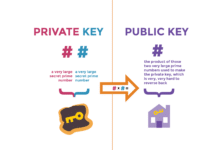The monitors can be useful for researchers looking at how drinking and the emergence of chronic diseases interact.
Sina Kianersi, a recent doctorate candidate at Indiana University’s School of Public Health-Bloomington, has created the first open source model to convert transdermal alcohol content—data gathered from skin secretions—into knowledge that researchers can use.
Kianersi, who is currently a post-doctoral scholar at Harvard University, developed a successful model to read the transdermal alcohol content using machine learning and signal filtering. The Society for the Study of Addiction published the findings in their journal, Addiction.
The BACtrack Skyn, an alcohol biosensor worn on the wrist like a fitness activity tracker, was used in the study to gather data on transdermal alcohol content. Every 20 seconds, the sensor gathers information on alcohol excreted through the skin, which accounts for around 1% of alcohol consumed. The data are converted by Kianersi’s algorithm into details about when and how much alcohol was ingested.
Participants in the study manually recorded their alcohol use, responded to daily survey questions about their consumption over the previous 24 hours, and some utilised keychain breathalysers to monitor their blood alcohol level in order to collect comparison data for the model’s development.
The model’s primary application will be in the next wave of wearable alcohol monitors. Researchers are better able to comprehend the relationship between various drinking patterns and dosages and the emergence of chronic illnesses like diabetes or cancer. Other applications include social and family alcohol consumption monitoring or public health initiatives to encourage safe alcohol use in local communities.
Kianersi won the contest and received a cash payment prize of $1,000 in addition to an additional $10,000 for their planned study. Additional funding was provided by a National Institutes of Health training grant, and co-authors Molly Rosenberg, the dissertation chair and an associate professor of epidemiology and biostatistics, and Christina Ludema, the associate professor of epidemiology and biostatistics, were awarded a university equipment grant to purchase the BACtrack Skyn devices.













































































